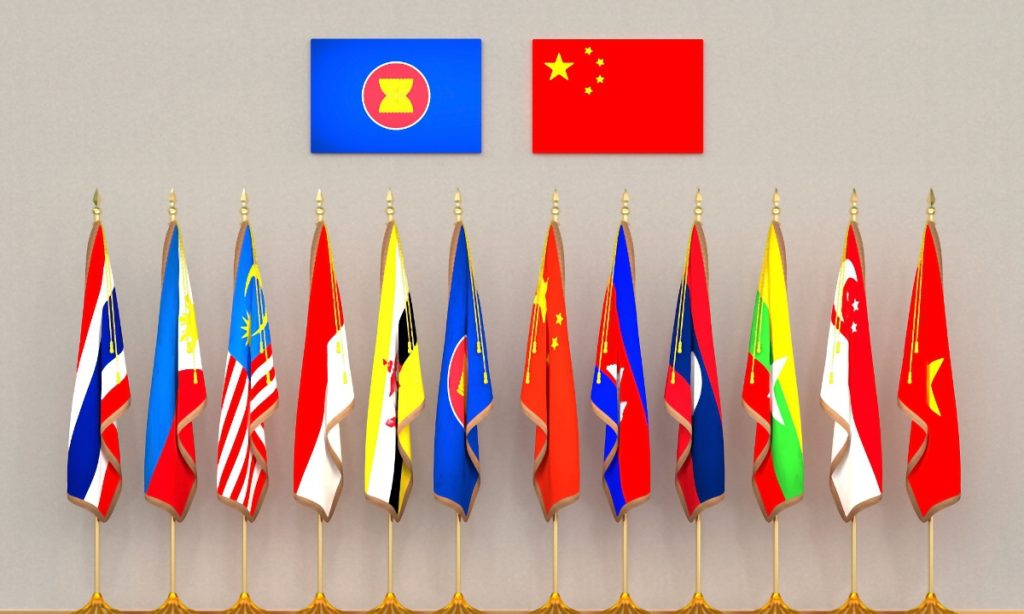Chinese FM to attend ASEAN Plus Foreign Ministers’ meetings

From July 10 to 11, Member of the Political Bureau of the CPC Central Committee and Foreign Minister Wang Yi will attend the China-ASEAN Foreign Ministers' Meeting, the ASEAN Plus Three Foreign Ministers' Meeting, the East Asia Summit Foreign Ministers' Meeting and the ASEAN Regional Forum Foreign Ministers' Meeting in Kuala Lumpur, Malaysia, the Chinese Foreign Ministry announced on Tuesday.
Foreign Ministry spokesperson Mao Ning said on Tuesday that China hopes that through the upcoming foreign ministers' meetings, parties will be able to build more consensus, focus on development and cooperation and prepare the ground for the leaders' meetings later this year.
China firmly upholds ASEAN centrality, stands ready to steadily advance the China-ASEAN Free Trade Area 3.0 upgrade, and foster an even closer China-ASEAN community with a shared future, Mao said.
China looks forward to working with regional countries to uphold true multilateralism and open regionalism, defend free trade and the multilateral trading system, implement the RCEP with high quality and expand cooperation in emerging industries and promote the Asian values of peace, cooperation, openness and inclusiveness and develop a model of security for Asia featuring security for all, the spokesperson added.
Under the 2025 ASEAN Chairmanship theme "Inclusivity and Sustainability," the 58th ASEAN Foreign Ministers' Meeting (AMM) and related meetings kicked off on Tuesday in Kuala Lumpur, Malaysia, with tariffs and regional issues among key focuses amid growing global uncertainties.
Described as "one of the most significant diplomatic gatherings" in the region by local media, the AMM is expected to see more than 40 foreign ministers and representatives from international organizations in attendance from July 8 to 11.
Foreign ministers from the 10 ASEAN member states will attend the gathering, except Myanmar, which will be represented by a senior official from its foreign ministry, according to the Bernama, Malaysian National News Agency. In addition, several major global actors, including China, the US and Russia, will take part in ASEAN Post-Ministerial Conferences. Other dialogue partners include the European Union, Australia, Canada, India, Japan, New Zealand, South Korea, the United Kingdom and Switzerland, Malaysia local media The Star reported.
According to the Bernama, Malaysian National News Agency, the Thailand-Cambodia border clash, the political situation in Myanmar and Thailand will be on agenda as regional issues. Meanwhile, climate change, and ASEAN stance as nuclear weapon-free zone, as well as the US' tariff threats would be part of the border concerns to be addressed.
Gu Xiaosong, dean of the ASEAN Research Institute at Hainan Tropical Ocean University, told the Global Times that ASEAN serves as an exemplary model of regional cooperation, acting as a stabilizing force.
The foreign ministers' meeting and related meetings offer an opportunity to reinforce the ASEAN pursuit to uphold multilateralism, enhance collaboration and promote free trade, thereby ensuring regional stability and fostering deeper cooperation, Gu said.
"ASEAN is the key focus of neighborhood diplomacy which China prioritizes," Gu said, "It's expected that both sides will leverage meetings to strengthen coordination, including advancing investment partnerships under the Belt and Road Initiative, championing multilateralism, advocating for free trade, countering hegemonic behavior, and opposing external interference in security matters, particularly regarding the South China Sea."
According to the US State Department, Secretary of State Marco Rubio is scheduled to travel to Malaysia for ASEAN-related meetings, focusing on "reaffirming the United States' commitment to advancing a free, open, and secure Indo-Pacific region."
Meanwhile, the US is stepping up pressure on trading partners to quickly make new deals before a Wednesday deadline of the 90-day tariff pause, with plans for the US to start sending letters on Monday warning countries that higher tariffs could kick in on August 1, AP reported.
According to Chanel News Asia, the US announced plans for tariffs on Malaysia and five other countries in ASEAN, with Malaysia facing a 25 percent tariff, Laos and Myanmar 40 percent, Cambodia and Thailand 36 per cent, and Indonesia 32 percent.
Chen Xiangmiao, a research fellow at the National Institute for South China Sea Studies, believes that the visit by the senior US diplomat is not merely an attempt to exploit Southeast Asian nations to constrain China, particularly on the South China Sea issue and to diminish China's influence, but also is an effort to sow discord among ASEAN members.
"Amid tariff pressures from the US, ASEAN nations are highly unlikely to forsake cooperation with China due to such coercion," Chen said. "Collaboration with China serves as a critical buffer against potential economic losses, bolstered by China's immense market size, robust manufacturing capabilities and comprehensive industrial and supply chain systems."
In 2024, China and ASEAN had already been each other's largest trading partner for the fifth consecutive year, the Xinhua News Agency reported. Official data shows that the zero-tariff coverage rate between China and ASEAN has remained above 65 percent. In 2024, bilateral trade in goods reached $982.34 billion, a year-on-year growth of 7.8 percent.
"It would be much appreciated if US Secretary of the State visits the ASEAN foreign minister meeting with a peaceful mission, not to meddle in ASEAN affairs… ASEAN would appreciate if the US does not provide us with a binary choice on takings side with the US or China. Because giving us the binary choice means does not respect ASEAN sovereignty," Veronika Saraswati, director of the Global Development Research Center in Indonesia, told the Global Times.